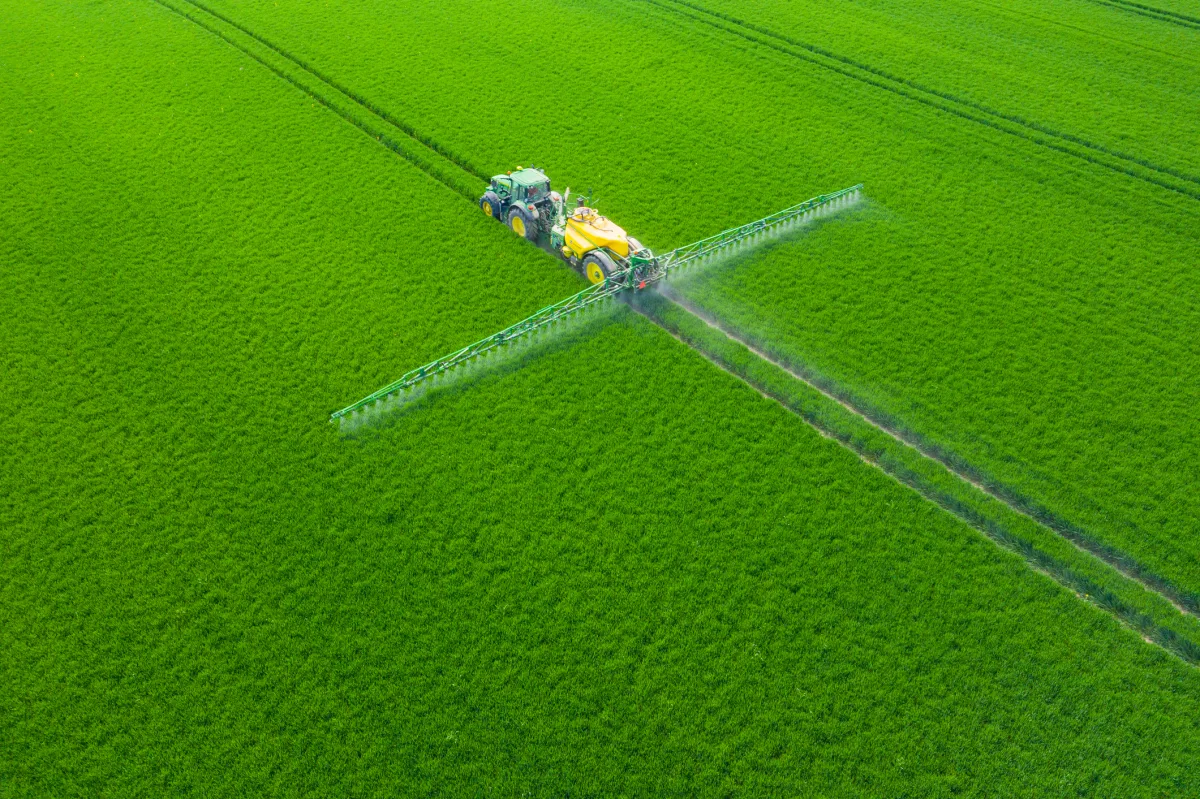Poland’s agriculture sector has undergone a profound transformation since the early 1990s. Once the backbone of the economy, it now accounts for just eight per cent of jobs and 2.7 per cent of GDP, as the country has modernised and diversified into other sectors.
Yet, despite this, agriculture remains a cornerstone of rural life as well as a key contributor to exports and an important source of employment. Its strategic importance is amplified by its role in promoting global food security. In 2023, Poland cultivated 2.4 million hectares of wheat, with agri-food exports reaching a record 51.8 billion euros.
To sustain agricultural output, however, and ensure the sector’s future growth and sustainability, farmers must modernise, expand operations, and adapt to the challenges posed by climate change—unlocking new investment opportunities. The adoption of new technologies, including digital tools and artificial intelligence, can significantly enhance productivity and attract a new generation of farmers to the sector.
Given that over 90 per cent of Poland’s agricultural land relies on rain-fed irrigation, the implementation of water-efficient agriculture technologies will also be critical for ensuring long-term sustainability, particularly in the face of increasing droughts and growing water scarcity.
Thriving under pressure
Poland’s 1.2 million small farms produce a wide variety of crops, ranging from cereals and vegetables to apples, berries, and wine grapes. Nearly a quarter of these farms are subsistence operations under one hectare, though consolidation efforts have increased the average farm size by 17 per cent since 2010, bringing it to 11.4 hectares.
Farmers—both large and small—are under mounting pressure to reduce costs and increase yields. While corporate farms are steadily growing, The International Finance Corporation (IFC) is committed to supporting smallholder farmers, helping them thrive in an evolving landscape. By strengthening agricultural value chains and promoting inclusive business models, small farms can continue to play a vital role in food production and rural development.
However, farmers are increasingly vulnerable to the impacts of climate change, grappling with hotter summers, severe droughts and floods. In 2024 alone, over 3,300 farmers lost more than 30 per cent of their production in at least one plot due to severe flooding.
Agriculture accounted for 8.5 per cent of Poland’s greenhouse gas emissions in 2021—partly due to relatively modest use of emission-intensive inputs—emissions are projected to rise. Poland’s National Energy and Climate Plan forecasts an emissions increase by 2030, highlighting the need for more ambitious action. While the plan identifies limited mitigation opportunities, it underscores the urgency of investing in more sustainable, resilient farming practices.
Fortunately, farmers can adopt climate-smart approaches that reduce emissions without compromising food security. These include converting organic waste into biomethane, optimizing fertiliser use, shifting to organic farming, and scaling renewable energy. Additionally, efficient irrigation systems, reduced tillage, and improved seed and livestock genetics can enhance both resilience and productivity.
Encouraging change
Polish farmers are working to meet EU environmental standards under the Farm to Fork Strategy. Market incentives, such as premium prices for decarbonised commodities and carbon credit sales, promote sustainable practices, though these opportunities tend to be limited to crop producers.
For example, Mars, Incorporated, a global company known for its diverse portfolio of food products, is partnering with European suppliers to promote regenerative agriculture, a climate-smart approach focused on soil health. Key practices include reducing tillage, planting cover crops, and rotating crops to boost biodiversity. The company provides farmers with financial incentives and guidance to support adoption efforts.
Meanwhile, Agreena, a strategic partner of IFC, helps farmers implement sustainable practices and measures carbon sequestration. Farmers earn carbon credits–one per ton of stored carbon–which they can sell to Agreena for resale in the voluntary carbon market.
Buyers, often agrifood companies, use these credits to reduce their supply chain carbon footprint. Agreena also supports peatland restoration initiatives that effectively store CO2 and support biodiversity by providing access to regenerative resources.
The importance of financing
While such private sector initiatives show promise, they remain limited in scale. Many farmers lack access to financing for climate-smart practices such as efficient irrigation equipment or drought-resistant seeds, which often require significant capital,
This financing gap presents an opportunity for financial institutions to engage more deeply by providing capital, financial products, and advisory services. Tailored financing solutions can drive the adoption of emissions-reducing, soil-enhancing, and water-conserving practices. By supporting these efforts, financial institutions can attract new clients, expand product offerings, and grow their green portfolios.
IFC is working to fill the gap by collaborating with financial institutions and partners to promote climate-smart practices and support inclusive business models that strengthen communities and farmers. To date, we have facilitated over 2.7 billion US dollars in financing for farmers in Central and Eastern Europe, enhancing productivity and integration into agribusiness value chains. IFC has also provided advisory support to more than 300,000 farmers in Europe, improving sustainability and access to technologies and markets.
As Poland advances its transition to a low-carbon economy, climate-smart agriculture will be a key pillar. By working with IFC to implement sustainable farming practices, leverage carbon credits, and access green finance, farmers—large and small—can build resilience, boost productivity, and help ensure a more secure and sustainable food system for generations to come.
Photo: Dreamstime.







